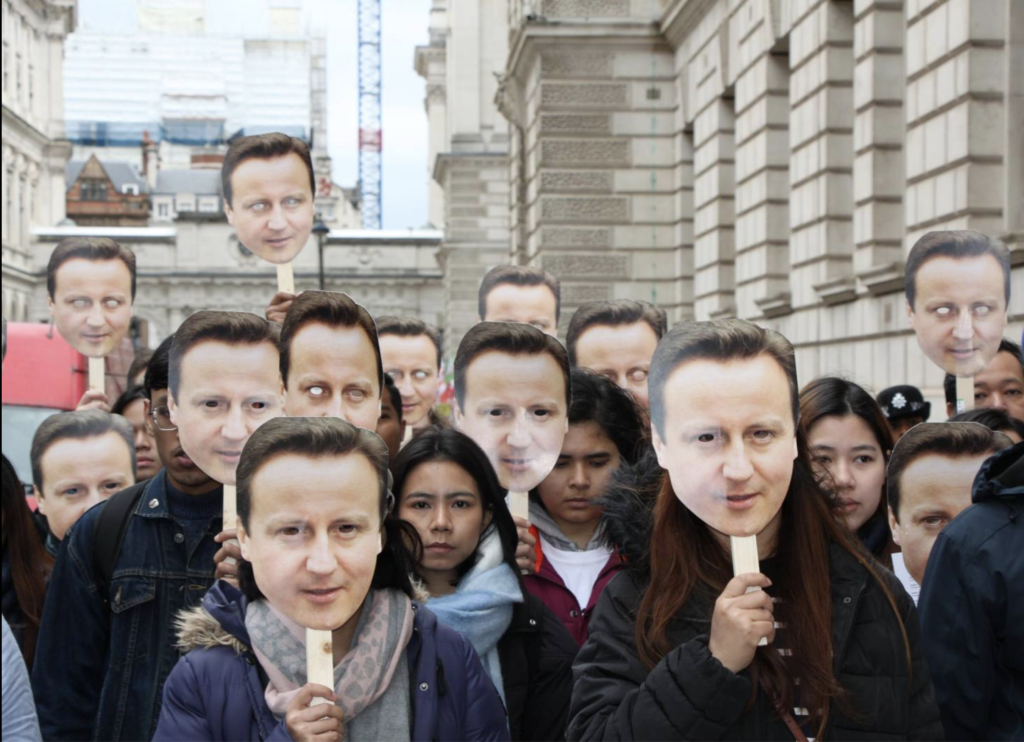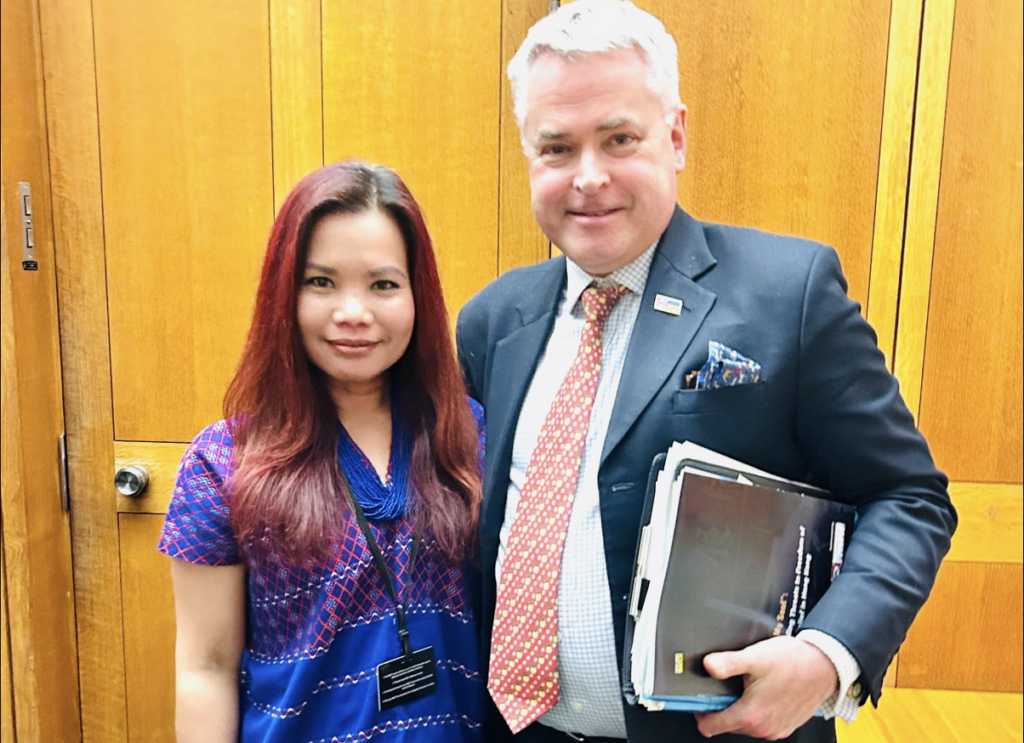Zoya Phan interviewed by Radio Karen
Zoya Phan, Burma Campaign UK’s Programme Director, was interviewed by Radio Karen about the UN Human Rights Council’s resolution calling on member states not to export, sell or transfer jet fuel to the Burmese military.
The resolution is another significant milestone in getting the issue up the international agenda and applying more pressure on countries still involved in the supply of jet fuel to Burma.
Watch interview with Zoya Phan (in Karen)
David Cameron- Sanction Jet Fuel Now!
Without aviation fuel the jets can’t fly. If they can’t fly, they can’t bomb.
UN debate and resolution on Myanmar
The UK has finally convened the discussion on Myanmar at the UN Security Council that Burma Campaign UK has been calling for. Speakers urged the Security Council to take decisive measures to end violence by the military and address the deteriorating humanitarian situation, also calling for the swift appointment of a UN Special Envoy.
At the meeting the USA and Malta called on the Council to take action to stop the supply of jet fuel to the Burmese military, but the UK failed to call for the Burmese military to abide by the measures ordered by the International Court of Justice to prevent the ongoing genocide of the Rohingya.
On the same day the UN Human Rights Council passed a resolution including calls for action on the humanitarian crisis, establishing the conditions for the safe return of the Rohingya, and ensuring accountability for those responsible for mass atrocities and human rights violations and abuses.
UN Human Rights Council resolution takes crucial stand against deadly jet fuel supply chain – Amnesty International
Responding to a decision by the UN Human Rights Council to adopt a resolution on Myanmar that for the first time calls on UN member states to refrain from the export, sale or transfer of jet fuel to the Myanmar military, the author of Amnesty International’s 2022 report “Deadly Cargo” said:
“This resolution is a step in the right direction to combat the deadly supply chain that enables the Myanmar military to continue its barrage of air strikes in which schools, clinics, religious buildings and other civilian infrastructure have all been targeted. It highlights the urgent need to suspend shipments of aviation fuel to Myanmar, where it is used by the military to carry out war crimes.”
David Cameron snail protest: speed up Myanmar sanctions
Stars of Myanmar Friendship, supported by Burma Campaign UK, held a protest today outside the British Foreign Office, calling for faster implementation of targeted sanctions against the Myanmar military.
The British government has still not sanctioned key sectors of support to the Myanmar military, including jet fuel, the gas industry and state banks. Members of the Myanmar community called on Foreign Secretary David Cameron to speed up the pace of new sanctions.

Zoya Phan interviewed by Burma News Network
Nant Zoya Phan, Burma Campaign UK’s Programme Director, talked to Burma News Network about the seminar “Towards a democratic Myanmar and its impact on security along the Thai border”, held on March 2-3 in the Thai Parliament, Bangkok, over the Burmese junta’s objection.
“It was emphasized that cross-border assistance is needed for war refugees” said Zoya Phan. “Humanitarian aid cannot be provided through the military council for the war refugees who are in the Myanmar border where there are millions. It was reported that it would work only if you pay directly through the Thai border. Thai parliamentarians accept and trust this presentation.”
House of Lords debates health care in Myanmar – Parliament Live TV
The House of Lords in the UK Parliament today held a short debate on Myanmar, secured by Lord Nigel Crisp. The Lords assessed the role the UK could play in supporting health care workers and the reconstruction of the health system in Myanmar.
462 CSOs urgently call on UN Security Council to protect civilians in Myanmar – Progressive Voice
Marking three years of the military junta’s failed coup, Burma Campaign UK has joined 461 organisations calling urgently for swift UN Security Council action against the military junta to end its war of terror and protect civilians in Myanmar.
House of Lords call for action on Rohingya genocide – Hansard
Today in the House of Lords, UK Foreign Secretary Lord Cameron was pushed on calling a UN Security Council meeting on Burma’s non-implementation of provisional measures set out by the International Court of Justice, to halt the Rohingya genocide. Burma Campaign UK has been campaigning for this, and it is great to see the pressure mounting on the British government.
Zoya Phan at UK Parliament
Zoya Phan, Burma Campaign UK’s programme director, took part with other friends from Burma in a Burma Hearing by the Conservative Party Human Rights Commission in Parliament today.

